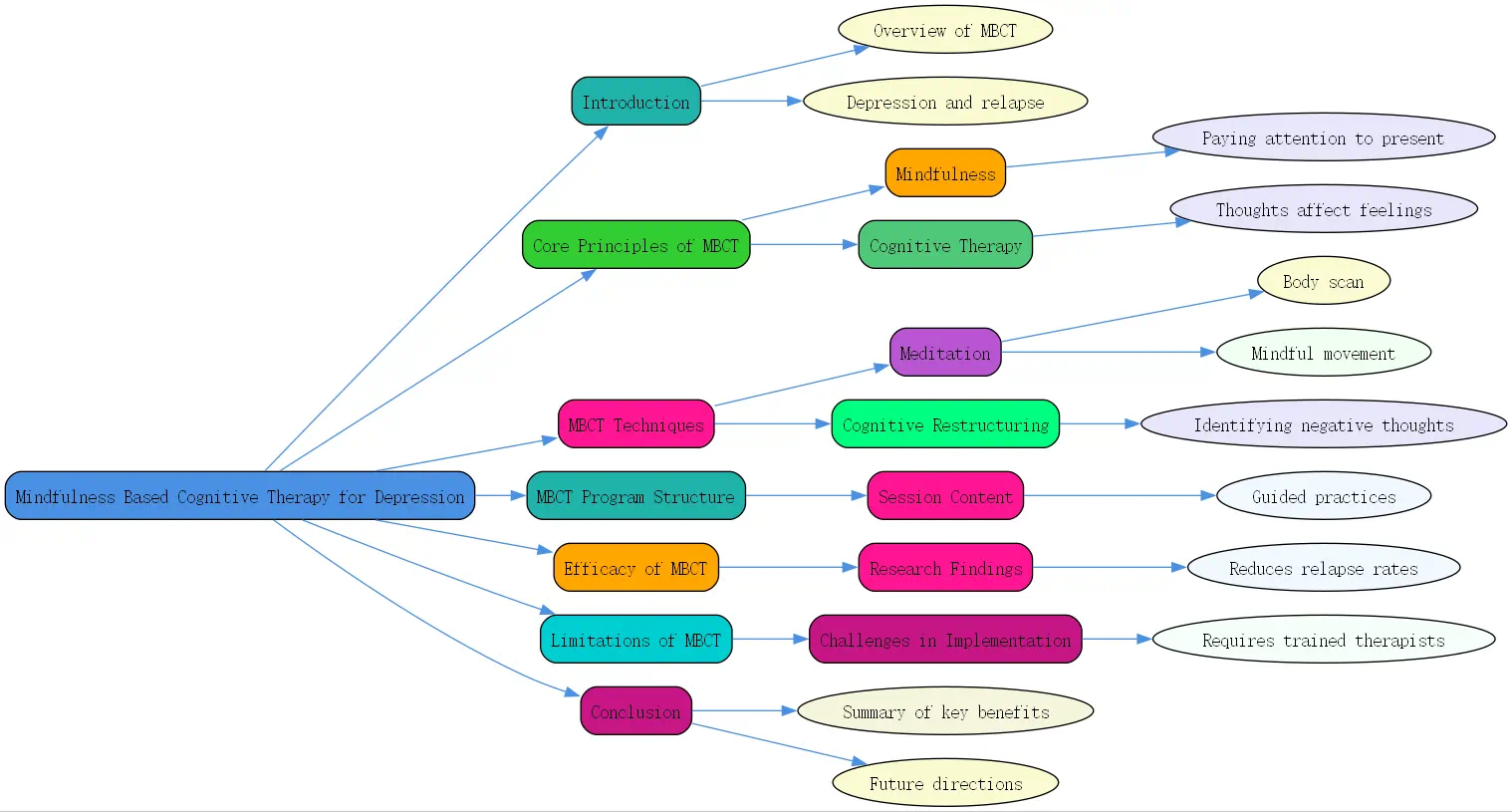Mindfulness Based Cognitive Therapy for Depression: A Comprehensive Guide

Depression is a pervasive mental health issue that can significantly impair one’s quality of life. Integrating mindfulness strategies, Mindfulness-Based Cognitive Therapy (MBCT) offers a promising approach to managing depression symptoms.
Understanding Depression and the Role of Anxiety
Depression often coexists with anxiety, creating a complex relationship where each can exacerbate the other. Health anxiety, a specific form of anxiety, intensifies this interconnection by adding irrational fears of severe illness which heighten depressive symptoms. Considering this, focusing on anxiety management is crucial in treating depression effectively.
What is Mindfulness Based Cognitive Therapy (MBCT)?
MBCT is a therapeutic approach blending mindfulness practices with cognitive behavioral strategies. Unlike traditional Cognitive Behavioral Therapy (CBT), which focuses on altering negative thoughts, MBCT emphasizes accepting and becoming aware of all incoming thoughts without judgment. This mindfulness aspect helps break the cycle of depression relapse by promoting mental resilience and emotional regulation.
Benefits of MBCT for Depression
Research indicates that MBCT reduces the recurrence of depression, especially in individuals who have experienced multiple episodes. It fosters a heightened state of mindfulness that helps individuals recognize and disengage from emotionally spiraling thoughts.
MBCT Exercises for Depression: Practical Techniques

Mindfulness Meditation Exercises
Mindfulness exercises form the core of MBCT. Daily practices like guided meditations or body scan exercises help individuals focus on the present moment and develop an accepting and compassionate relationship with their thoughts. The UCLA Mindfulness Podcast, along with other resources like downloadable body scan meditations, can be excellent starters for those new to this practice.
Response Prevention Techniques
A critical aspect of MBCT is identifying behaviors that reinforce anxiety, such as excessive web searching for health information or continuously seeking reassurance from others. By consciously limiting these behaviors and employing mindfulness techniques when urges arise, individuals can significantly reduce anxiety levels that contribute to depression.
Exposure Exercises for Managing Depression
Under supervised conditions, MBCT also incorporates exposure exercises. These involve confronting anxiety-provoking thoughts and situations without resorting to habitual responses. Over time, this practice leads to habituation, where the individual’s sensitivity to depression and anxiety triggers diminishes.
Finding Mindfulness Based Cognitive Therapy for Depression
MBCT for Depression Book Recommendations
For those looking to delve deeper into MBCT, numerous books provide insightful perspectives and practical exercises. Titles like “”The Mindful Way through Depression”” by Williams, Teasdale, Segal, and Kabat-Zinn are highly recommended and serve as valuable resources.
Accessing MBCT Programs and Therapists
Online MBCT programs, which have shown efficacy comparable to face-to-face therapy, offer accessibility and convenience. These programs often involve minimal therapist intervention and can be a good starting point for those hesitant about traditional therapy settings.

Daily Mindfulness for Depression: A First Step
Integrating mindfulness into daily routines can be a proactive step towards managing depression. Simple practices like observing breath or engaging in mindful walking can serve as foundational tools that foster a better response to emotional triggers.
Q&A Section: How Effective is Mindfulness Based Cognitive Therapy for Depression?
Question: Can mindfulness-based cognitive therapy truly alleviate depression symptoms?
Answer: Yes, numerous clinical studies have supported the efficacy of MBCT in reducing symptoms of depression, especially in preventing relapse in individuals with a history of recurrent depression. By fostering mindfulness, individuals gain tools to break away from negative thought patterns that contribute to the onset and perpetuation of depression.
For further reading and resources on managing depression, visit depression therapy at BrainTalking for comprehensive insights and expert-guided assistance.





